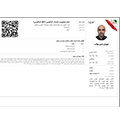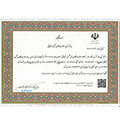FAQ
2025-07-09 2025-07-12 12:46FAQ
FAQ
On this page, we have addressed the most common questions asked by business leaders, investors, and international companies interested in entering the Iranian market. Although the Iranian market presents certain complexities, with informed guidance and local expertise, it can become a successful and profitable venture.Whether you’re evaluating entry options, looking for a local partner, registering a company, or planning a financial structure, this section offers a clear and practical starting point for understanding the challenges, opportunities, and legal requirements involved. The responses are based on the hands-on experience and consulting practice of Dr. Ahmad Mirabi, a trusted advisor with deep knowledge of Iran’s legal, cultural, and economic landscape.
What challenges do foreign businesses face in Iran?
Foreign companies may face issues such as legal and regulatory differences, currency restrictions, localization requirements, lack of transparency in some processes, and cultural nuances. A well-informed strategy and locally adapted consulting are key to overcoming these barriers.
How can Dr. Mirabi assist in navigating Iranian regulations?
With a comprehensive understanding of Iran’s legal system, regulatory authorities, and administrative procedures, Dr. Mirabi streamlines the entry process for foreign businesses—making it more secure, transparent, and manageable.
Which industries are currently growing in Iran?
High-growth sectors include information technology, logistics, digital healthcare, smart agriculture, domestic tourism, renewable energy, and online education.
Is it possible to repatriate capital and profits from Iran?
Yes, but it requires compliance with specific legal and banking frameworks. With proper planning and expert guidance, legal and transparent channels can be established.
What cultural factors should be taken into account?
Important factors include negotiation style, organizational hierarchy, the gradual development of trust, and the strong emphasis on personal relationships.
What’s the best way to find a local partner in Iran?
Use trusted networks, conduct targeted market research, and collaborate with reliable advisors like Dr. Mirabi, who maintains an extensive network across various industries.
Are there ownership restrictions for foreign entities in Iran?
Yes, in certain sectors such as real estate and media. However, full or joint ownership is possible in fields such as industry, technology, services, and startups.
How long does it take to register a foreign company in Iran?
Typically, it takes between 4 and 8 weeks, depending on the business type, ownership structure, and documentation. With the right guidance, the timeline can often be shortened.
What are Iran’s competitive advantages for foreign businesses?
Iran offers a large consumer base, a well-educated workforce, lower production costs, vast natural resources, and a strategic geopolitical location.
How can companies operate in Iran despite sanctions?
By structuring business operations intelligently—such as using intermediary entities in third countries, leveraging approved financial channels, and complying with international regulations.
What role does Dr. Mirabi play in facilitating strategic partnerships?
Dr. Mirabi brings extensive experience in negotiation, contract development, local market insight, and network building—making him a strategic ally for successful market entry and growth.
Are there government incentives available for foreign companies?
Yes. Free trade zones, technology support programs, export assistance, and investment opportunities in underdeveloped regions are among the available incentives.
What are reliable sources of market intelligence in Iran?
Credible sources include reports from the Iran Chamber of Commerce, data from the Ministry of Industry and Trade, and up-to-date analysis from trusted local consultants such as Dr. Mirabi.
What legal and contractual requirements should be considered when working with Iranian partners?
Key factors include Iran’s Commercial Code, partnership agreements, brand registration, labor regulations, and both domestic and international arbitration mechanisms—all of which require careful legal review.




